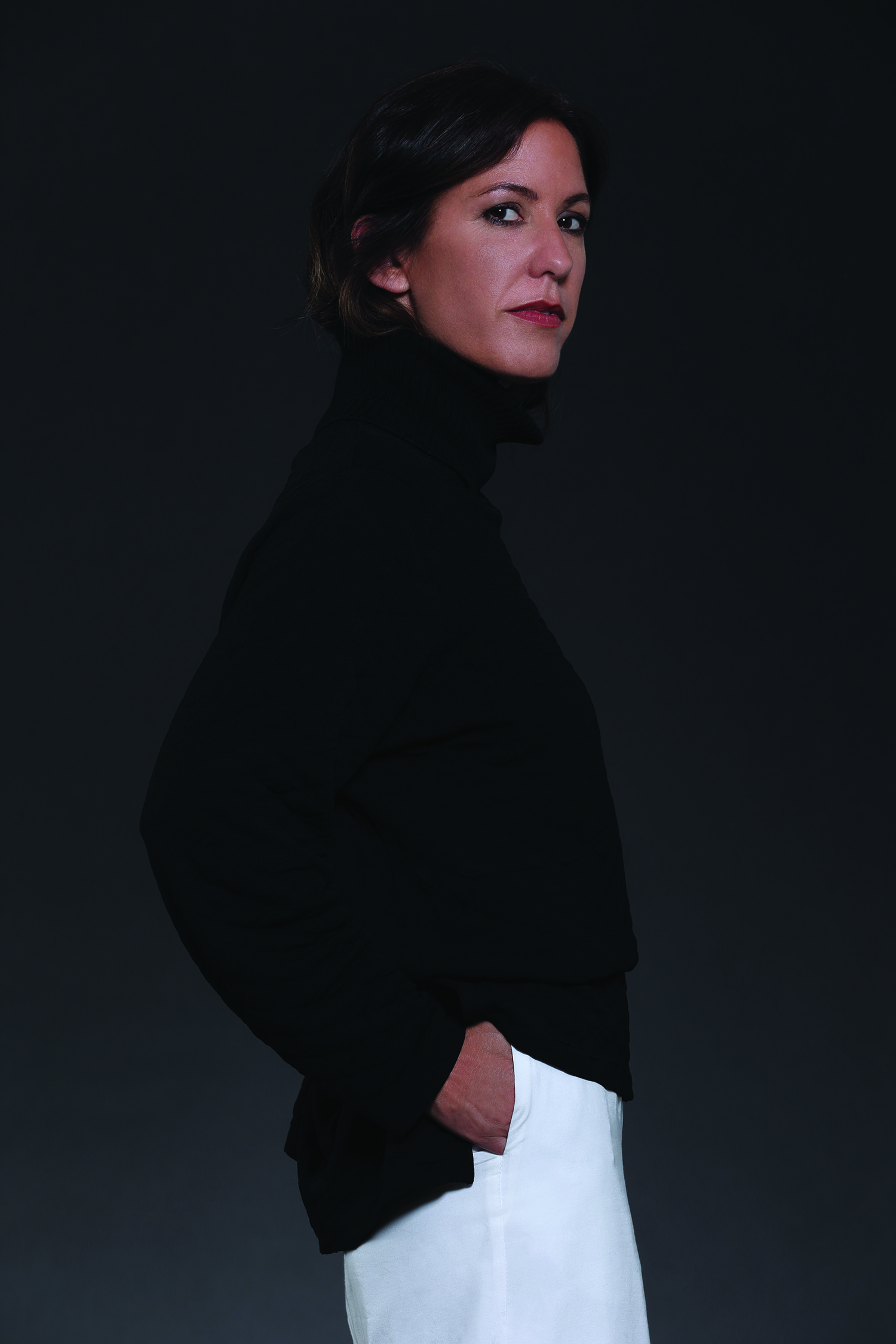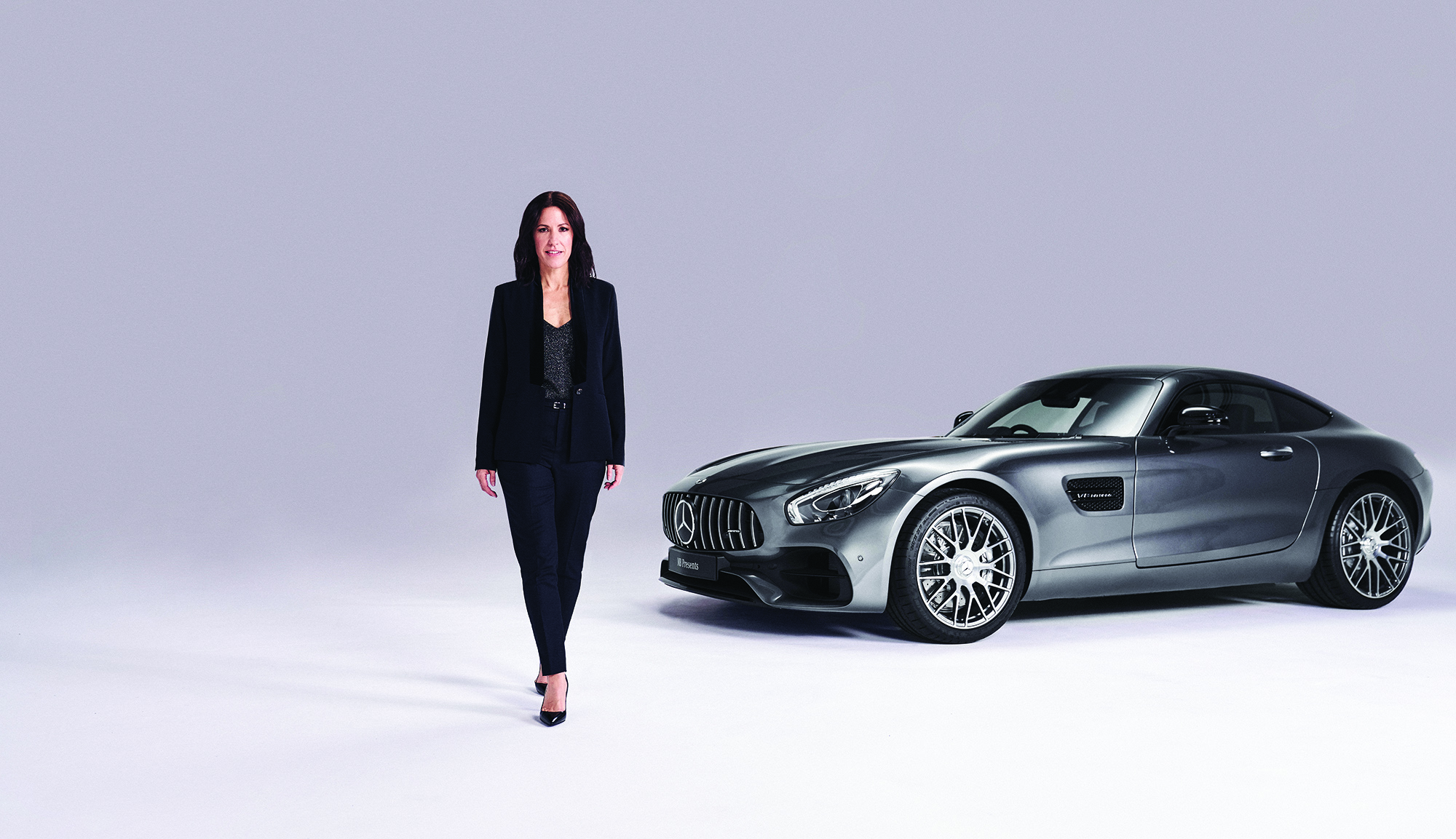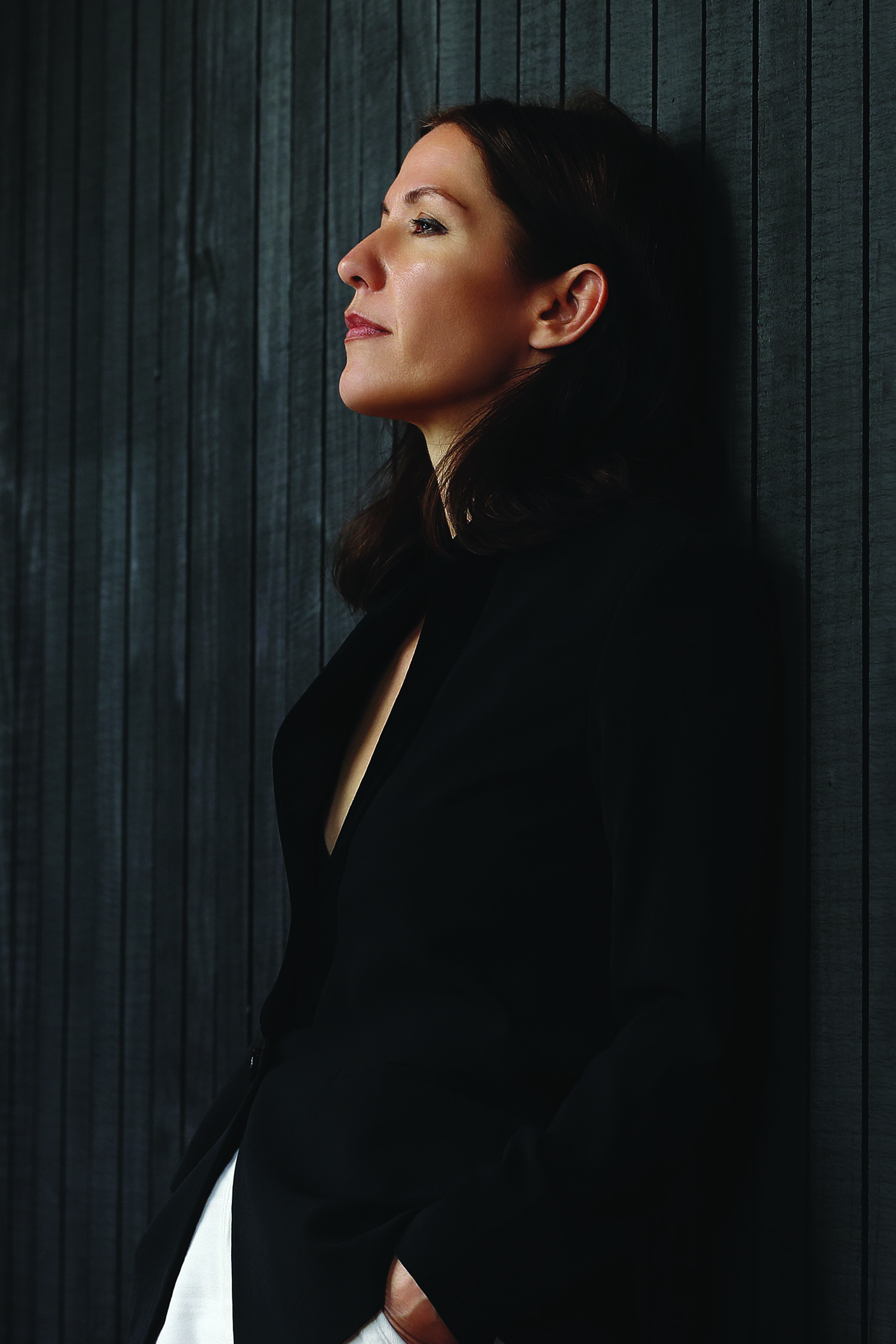Designing Life
Over the last 13 years, Turet Knuefermann has built a fashion brand that is known for its celebration of femininity, quality, innovation and style. Her stunning pieces seem imbued with her passion for her craft and her desire to make her customers look and feel beautiful and confident.
Turet works tirelessly over all aspects of her business, from the shop floor to the design and strategy but still has time to spend with helping to raise a new son and open this year’s New Zealand Fashion Week after being announced as the ‘Mercedes-Benz Presents’ Designer for 2018.
Turet shares with us her journey to opening New Zealand Fashion Week 2018 and beyond.
How do you handle stress?
I try not to get that stressed anymore; I recognise it in myself when it happens and then sort it out and move on. I tend not to really stress anymore. You can only do what you can do.
Was that something that you had to learn?
Yes, absolutely. But to be honest, a little bit of stress creates adrenalin, which makes you get things done as well, so it makes you quite a productive person.

Of course, things have changed for you now as well. You’ve got a different dynamic in the mix with a young toddler. How have you found coming back to work?
I was back at work the following day. I couldn’t stay away, haha. It has in that I feel so much fuller and more insightful with regard to people. Not that there wasn’t that humility before, but I definitely find that I’m connecting better with people. There’s a lot more ability to communicate in a more understanding and effective way.
I also think you work much more quickly and efficiently because you’re dying to get home at the end of the day and spend quality family time. Not saying that it was unproductive before but I wasn’t always as efficient and it’s definitely been making me analyse what has to be addressed to get to different goals.
I’m also consistently reviewing decisions to see if I’m on the right track or not and staying light on my feet and open to new ideas and opportunities that might come my way. But I’m analysing them more now because time is limited.
A lot of really career-driven and successful people might have that dilemma where they worry about bringing a family into the mix would slow down that career success. Have you found that you have had to compromise things on either side?
I have a very supportive partner in Danilo who is completely committed to spending time with Ayrton, so fortunately I have a lot of flexibility. Occasionally, there are times when I might not be there when he wakes up in the morning, or late at night, but I think I still spend a huge amount of quality time with him because I’ve made him part of my life and I’ve involved him in work when he was still small. I take him along to everything, so if anything, I think he’ll get more exposed and have more insights and more connections due to being around people. Whether we go out to a function or dinner, we just take him because we want it all and we want to have both. I think people are so understanding of that. He’s always got a smile on his face, and he’s so happy, so it’s OK in my book.
In terms of running a business, are there aspects of that where you really feel like you’re in your flow with the things that you need to be doing?
I actually really love having a variety of things to do. I have a short attention span, so I love a little bit of everything and that’s what makes me really happy. I enjoy writing copy, I like putting together shoots, going to the pattern room to talk to the seamstresses and the excitement of being in store and meeting clients – and they’re such amazing women that you get to connect with. I guess that’s why I’ve always loved working all the time and have worked so hard in other people’s eyes, because the variety makes it super-colourful and fun. My ultimate happy place though is locking myself in a room with a glass of wine and being creative and creating. Just going back to the original craft of making a garment from scratch without a formula, just taking a piece of fabric and creating something from nothing. Making something beautiful and a part of yourself is such a rush when you complete it. That’s why I started in this, what I’m spending more time moving back to.
Has technology changed that process though by now?
Absolutely. Everything is getting faster and more efficient, and especially over in countries like China where they’re producing massive numbers. It’s amazing because it makes everything really efficient and quick, and in a sense, sustainable too because there’s very little wastage. Even down to patternmaking now, all the systems are in CAD, so you can do grading automatically and print out markers to do the cuts. It means that because fashion’s so fast, there’s copies of copies of copies and there’s less and less of that from the ground up creation. I’m not saying one’s better than the other, but I just enjoy the whole old-school craft. But of course, we do employ new technologies when we need to. I think to stay current and to stay in the market, you have to use a little bit of everything. You can’t be proud and say, “I’m not going to do it like that”, because it might put you out of that action, so it’s all about the big picture.
And speaking of being put out of action, it seems like fashion in New Zealand has been a bit of a rough ride for some brands over the last few years. What do you think that we need to do within the industry here to protect ourselves and make sure that we’ve got a unique proposition to remain commercially viable?
New Zealand customers are really, really supportive and they want to know where something comes from, and I’ve really been quite blown away with that over the years. That unbelievable loyalty and care that comes from people here. So I think if there’s transparency with how things are made and where they come from, people want to support that and there will be opportunity for those brands. Not saying that the ones that went under didn’t have that, but I think they might have grown too big in a small area. I test the market with certain styles and don’t do big runs of anything. I’ll make more, but only as much as is needed. I don’t go and make 2,000, hoping that they might sell. I really, really keep it tight and keep it simple, and I guess, test and listen and try to get close to the customer – I work on the floor and listen to the team when they are telling me about the feedback that they get. Of course, this can be replicated in a bigger company as well, but I think it’s about being careful not to overproduce for everyone’s sake.

You spoke about fast fashion before and the pace of the industry and being able to create iterations at the touch of a button, but do you get the sense that there is a rising environmental consciousness and more of an awareness of the impact of fast fashion?
The feedback that I’ve heard is that the very young consumer really does care about where and how their products are made and I think people are definitely more conscious to simplify their life. It’s almost as though when you have a whole wardrobe of so many clothes, you’ve suddenly got nothing to wear because it can get overwhelming.
It’s also something that I grew up with in Germany. We were really conscious making considered decisions and recycling, and here it’s nice to know that we are trying hard to live up to our perception of being a clean country.
In terms of the fashion side of things, have you noticed a change in what’s inspiring your customers and a new generation of customers coming through?
In New Zealand, I’m finding that people really want to create their own personal sense of style and style things in their own way. They love a variety of different brands. And love longevity and versatility. The New Zealand market is not about that uniform type of look, or certain rules; people really like to mix it up.
Is there inspiration that you draw from overseas and from other brands?
Of course, I’m always looking at everything that’s happening, and I love seeing what is happening overseas. But fashion in every country is often more a reflection of its culture and climate. We have a lot of people coming to us for dresses for events, and so that’s something that we love to focus on and then also the relaxed resort wear and weekend wear. For the show at Fashion Week this year, I’ve definitely elevated things a little bit and I’m making more playful pieces that aren’t quite as commercial but still wearable. Generally, I am considering that someone will have somewhere to wear the garment that I’ve produced, as opposed to just making things completely for art’s sake.
With something like New Zealand Fashion Week, do you have to balance the wearable with the art?
Yes absolutely. For New Zealand, it kind of needs to be like that. It would be incredible to do a [Alexander] McQueen-style, completely Jurassic show. But of course, if I took six months out of the year to produce a show like that, it would take so much capital and time. At the end of the day, I want to making things for people to wear.
Is there a vision that you’ve got for the future in terms of scale?
Online for sure because otherwise, it becomes people management and everything else. Going back to your question before about how having a baby had impacted my thinking, it also gave me the sense that I want to refine the business as well and keep it simple. I’m not after huge amounts of wealth but one wants to be comfortable. To do that, it’s actually a case of only simplifying things and keeping it special and manageable with a small team, because it keeps it unique and also profitable. So I’m definitely looking to simplify again but it won’t mean reducing my turnover or production. I’m definitely not about world domination in sense of physical bricks and mortar stores, but I’m really excited about the future of online sales and the story that we can create through that next phase.

Is legacy important to you?
Not a legacy in the sense of having a brand that my son takes over. But I really want to give him the skills and education to be really sharp at whatever he puts his mind to and feel proud of his achievements and, of course, leave him financially in a position that he can do something cool as well, and maybe make a difference in the world. To not have the pressure of having to survive and actually be able to make a difference. He seems already like one of those supersensitive caring types, that if raised the right way, he could maybe do something to help other people, or the environment or something like that. I think when you have time, you have freedom as well to be able to do something that’s exciting like that.
Over the last year, we’ve been running our Journey to Excellence events in an effort to encourage diversity at Board and governance level. There are some incredible women who have broken through the glass ceiling and are creating pathways towards corporate leadership. While also many have started their own businesses and have spoken about the fact that they needed to go off and start their own thing, because if they were working for someone else, they wouldn’t have been able to juggle both family, and then also get to where they wanted to be in terms of controlling their own destiny. Do you think that you would have been able to have the same impact if you’d been working for someone else?
It depends where you’re working and whether they have the trust in you to give you freedom to make those calls. I run my business giving the staff the knowledge that if they want to, they should make decisions and act on those and I totally support them to do so, so that they are thinking ahead and thinking on their own, or about how they can do things better. If I were working for someone else, I’d hope that I’d be somewhere where I have the trust from my employer to innovate and make improvements or create new opportunities for the company. I have worked for others as well, and I really enjoyed the experience.
Was there a catalyst for you to go off on your own?
It was totally reactive. It just happened because I’m a “yes” person effectively. “Can you make me clothes to wear?”, “Yes”. “Can you make me clothes to sell?” “Yes”. “Can you make more?” “Yes”. And it just turned into my career. I absolutely didn’t plan to start a label or anything like that. It was all organic and reactive, I love where it has taken me.
What’s the best piece of advice you’ve been given?
Oh there’s so many good ones…
“It’s not what you make, it’s what you save.”
“Believe half of what you hear and everything you see.”
“Turnover is vanity, profit is sanity.”

